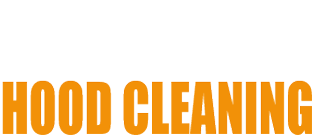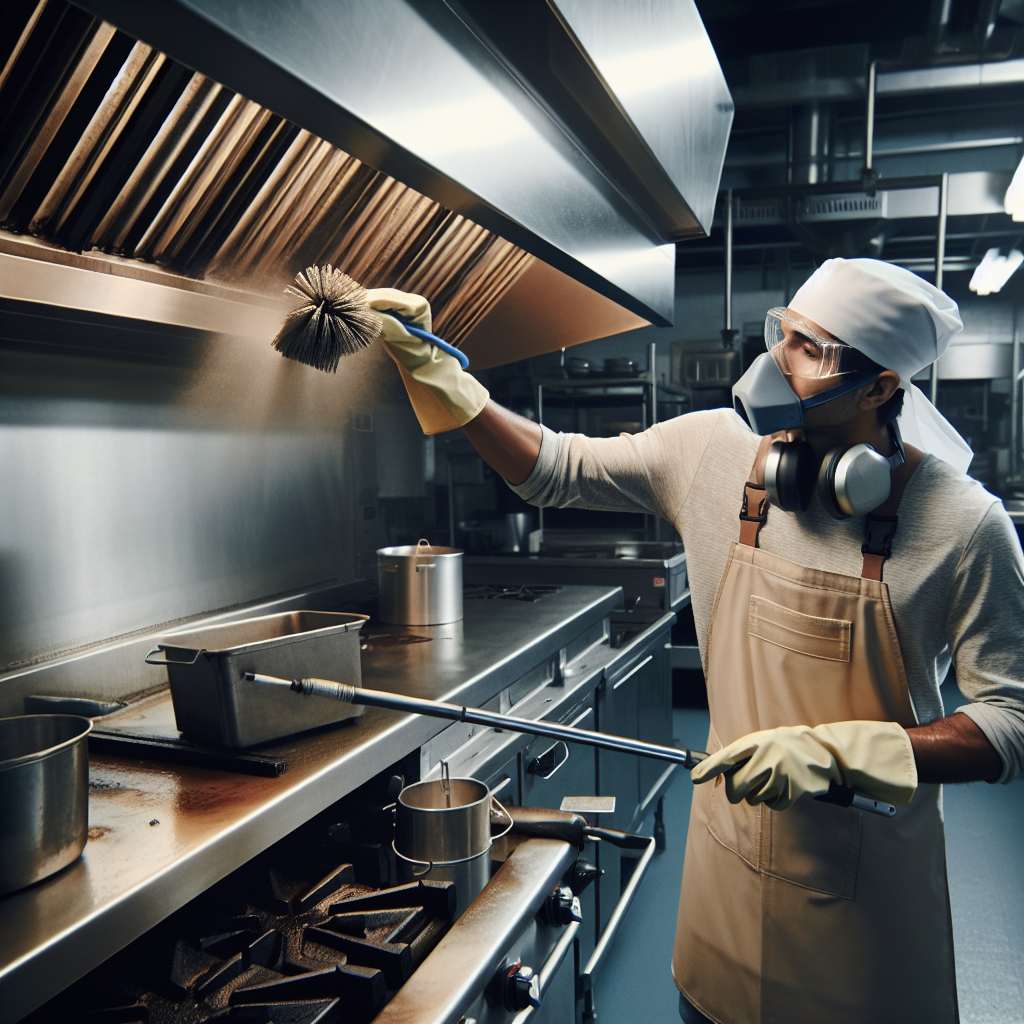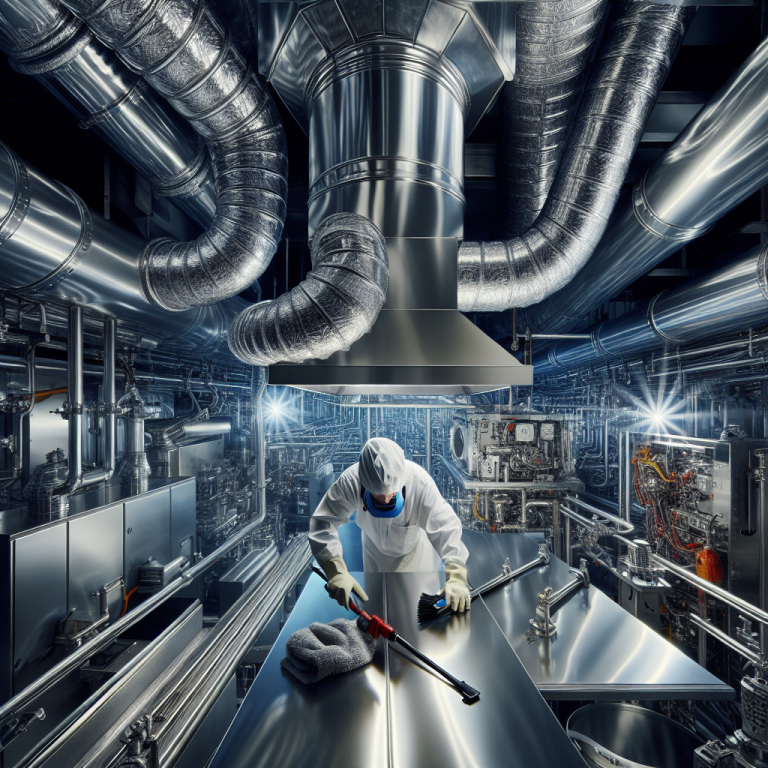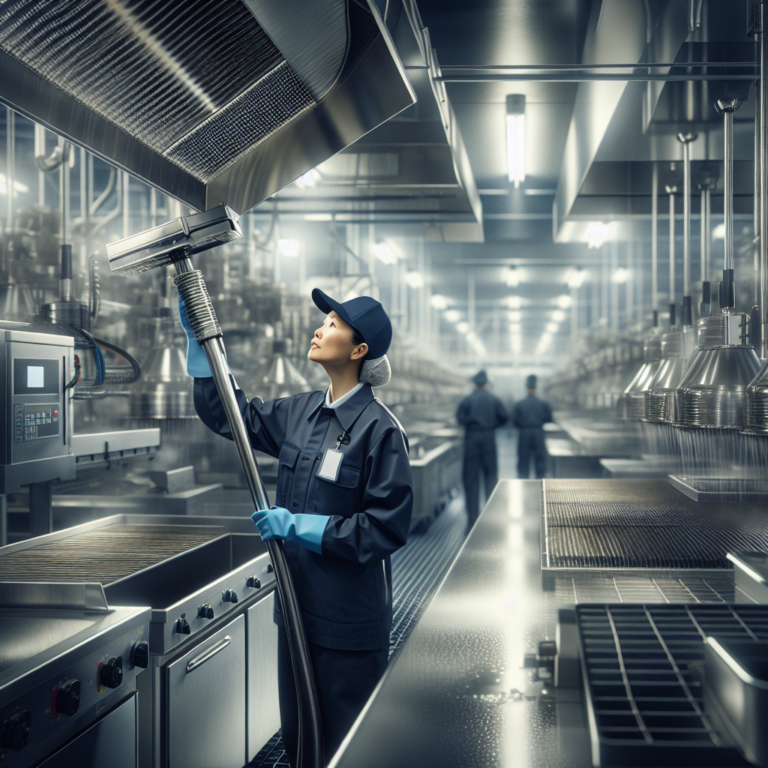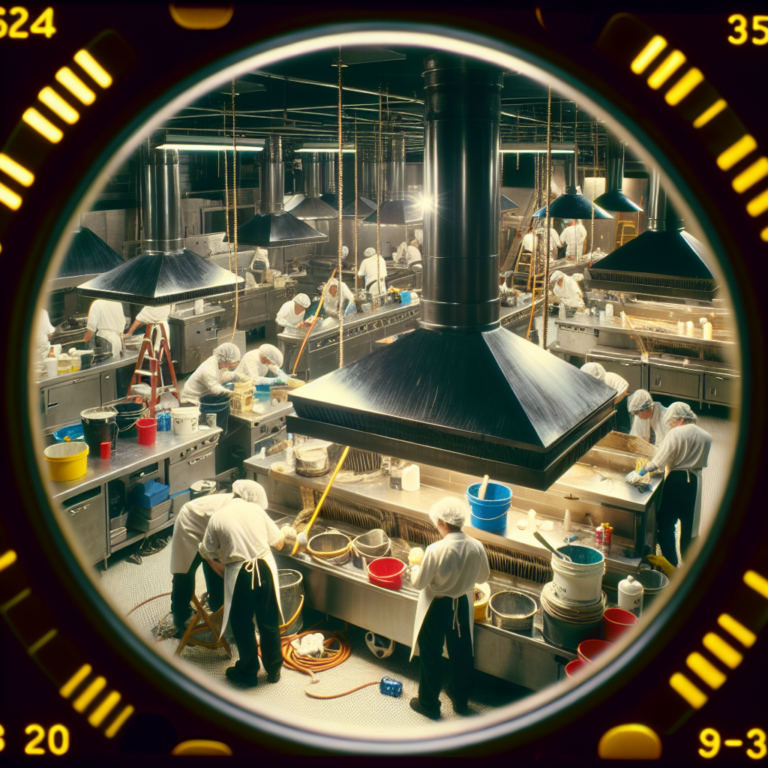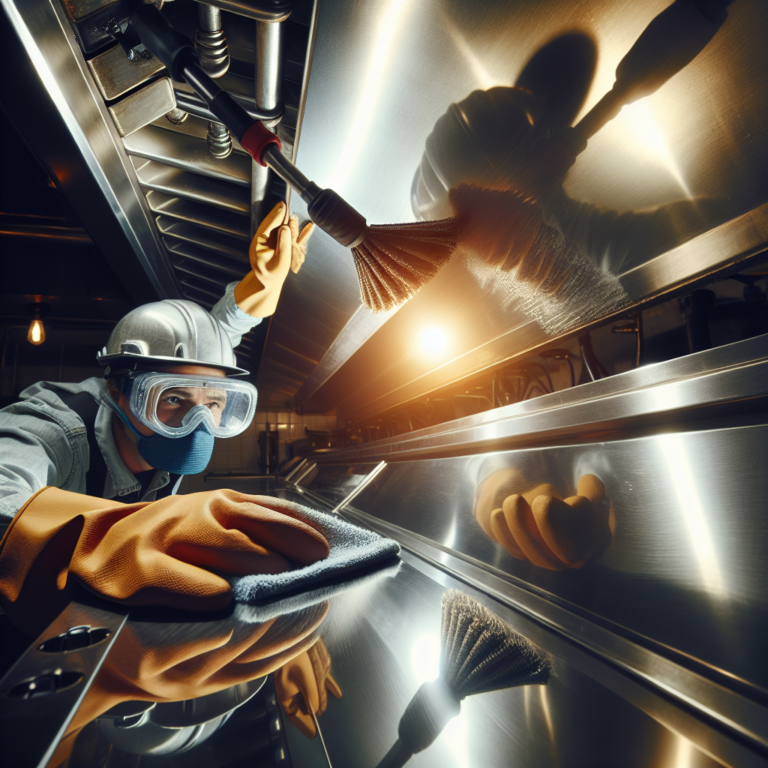Essential Tips for Effective Hood Cleaning in Large Commercial Kitchens
Understanding the Importance of Hood Cleaning in Commercial Kitchens
Running a successful restaurant involves far more than just culinary expertise. One critical aspect that often goes unnoticed but plays a vital role in maintaining a healthy and compliant kitchen is hood cleaning. Restaurant hood cleaning ensures that your kitchen remains safe, efficient, and up to health code standards. Especially in bustling places like Denver, the constant operation of commercial kitchens makes exhaust hood cleaning an indispensable task. This guide aims to discuss the specific challenges and requirements of hood cleaning in large commercial kitchens.
Why Commercial Kitchen Hood Cleaning Matters
Commercial kitchen hood cleaning is not just about keeping the kitchen looking spotless; it’s about safety and efficiency. During cooking, grease and other by-products accumulate in the hood, vents, and exhaust systems. Over time, this build-up can become a fire hazard. Restaurants in Denver, where there’s a high demand for good food, can’t afford to overlook this crucial aspect. Regular Denver hood cleaning can prevent potentially catastrophic incidents, ensuring both the safety of employees and the satisfaction of customers.
Legal Requirements and Compliance
In the United States, the National Fire Protection Association (NFPA) sets stringent guidelines for exhaust hood cleaning and maintenance. Failure to comply can result in hefty fines, legal action, and even closure of the establishment. Local authorities in Denver also enforce these regulations rigorously. Therefore, it is essential to stay ahead of the curve by scheduling regular hood cleaning sessions. This not only keeps regulators happy but also boosts your restaurant’s overall reputation.
Challenges in Hood Cleaning
The process of hood cleaning in commercial kitchens is far from straightforward, particularly when dealing with large-scale operations. Entrepreneurs often find themselves grappling with several unique challenges:
- Grease Build-Up: The accumulation of grease is faster in high-volume kitchens, requiring more frequent cleaning.
- Accessibility: Some hood and exhaust systems are hard to reach, necessitating specialized equipment and expertise.
- Downtime: Scheduling restaurant hood cleaning without affecting business hours can be a logistical nightmare.
- Compliance: Staying updated with the latest regulations can be overwhelming, but it’s a non-negotiable aspect of the business.
Best Practices for Effective Hood Cleaning
Implementing a structured hood cleaning routine can help mitigate several challenges. Here are some best practices to consider:
Regular Inspections
Conduct regular inspections of your hood and exhaust systems. This helps in identifying potential issues before they become significant problems. It’s advisable to have a checklist and adhere to it religiously.
Hire Professionals
While DIY methods can be tempting, professional Denver hood cleaning services bring a level of expertise and thoroughness that’s hard to match. Professionals are well-versed with the latest regulations and have the right equipment to do the job efficiently.
Use Quality Cleaning Products
Invest in high-quality cleaning products specifically designed for kitchen hoods and exhaust systems. Poor-quality cleaners can leave residues that might affect the efficiency of your system.
- Non-Toxic Cleaners: Opt for eco-friendly, non-toxic cleaning agents that ensure the safety of your kitchen staff and the environment.
- Degreasers: Powerful degreasers can make the cleaning process quicker and more efficient.
Scheduled Cleaning
Create a cleaning schedule that aligns with the operational hours of your restaurant. This minimizes disruption to your business. For high-volume kitchens, a bi-weekly or monthly cleaning schedule might be more appropriate.
Choosing the Right Hood Cleaning Service
Selecting a reputable Denver hood cleaning service is a critical decision. Here are a few factors to consider:
- Experience: Look for a service provider with substantial experience in commercial kitchen hood cleaning.
- Certifications: Ensure the service provider is certified and complies with NFPA standards.
- Reviews: Customer reviews and testimonials can offer valuable insights into the service quality.
Case Study: Effective Hood Cleaning in a Busy Denver Restaurant
Let’s take a look at a real-world example. A popular Denver restaurant, known for its extensive menu and high customer turnover, was facing severe grease build-up issues. By opting for a professional restaurant hood cleaning service, the owners not only mitigated fire hazards but also observed a significant improvement in kitchen ventilation. The kitchen staff reported a cooler work environment, and the overall hygiene of the kitchen improved dramatically.
Long-Term Benefits of Regular Hood Cleaning
Investing in regular exhaust hood cleaning is not just a short-term fix. The long-term benefits are manifold:
- Enhanced Safety: Minimizing fire hazards is perhaps the most compelling reason to stick to a rigorous cleaning schedule.
- Health Code Compliance: Regular cleanings ensure that your restaurant remains compliant with health and safety regulations.
- Improved Air Quality: A clean exhaust system improves the overall air quality in the kitchen, making it a more pleasant work environment.
- Cost-Effective: Regular maintenance can extend the lifespan of your hood and exhaust systems, saving you money in the long run.
Take the Next Step
It’s clear that effective hood cleaning is indispensable for the successful operation of commercial kitchens. If you are looking for reliable and professional services, you might want to consider Denver hood cleaning services offered by ProCo Hood Cleaning. Their expertise can ensure that your kitchen remains compliant, safe, and efficient.
